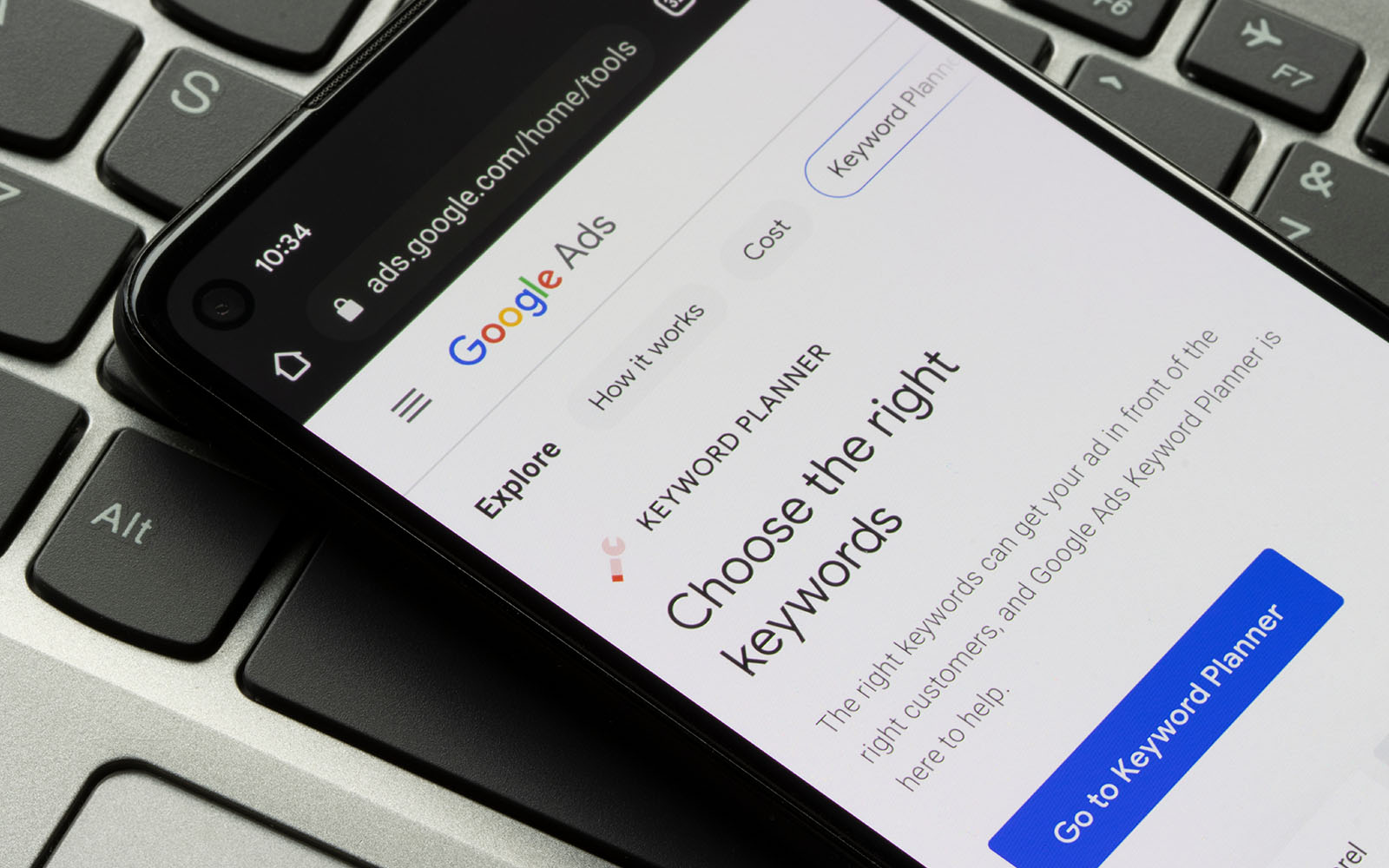
An Overview of PPC Advertising
Pay-per-Click (PPC) advertising has become an essential tool for small businesses to increase their online visibility and attract more customers. PPC is a model of digital advertising in which advertisers pay each time a user clicks on one of their ads. It allows businesses to bid on keywords relevant to their products or services, and when users search for those keywords, the ads appear at the top of the search engine results page (SERP).
Explanation of Pay-Per-Click (PPC)
PPC is an online advertising model that allows businesses to place ads on search engines, social media platforms, and other websites. When users click on these ads, the business pays a fee to the platform where the ad was placed. The cost per click varies based on factors such as keyword competition and ad relevancy.
One major advantage of PPC advertising is that it allows businesses to target specific audiences based on demographics, interests, behaviors and other criteria. This enables small businesses with tight marketing budgets to reach potential customers they might not have been able to connect with using traditional marketing methods.
Importance of PPC for Small Businesses
For small businesses looking to grow their customer base and increase revenue, PPC can be a game-changer. With PPC ads appearing at the top of SERPs and social media feeds, it gives them visibility even if they do not rank highly in organic search results.
Moreover, unlike traditional forms of advertising such as print or television commercials where success is difficult to measure effectively; PPC provides real-time data that can help businesses optimize campaigns continuously. This means small business owners can track what works best without wasting precious marketing dollars.
Purpose of The Article
The purpose of this article is twofold: firstly, it aims to provide an overview of how Pay Per Click (PPC) works for small businesses and why it is important for their digital marketing strategy. Secondly, it provides practical tips on how to create a successful PPC campaign and measure its performance. By the end of the article, readers will have a thorough understanding of PPC advertising, how it can help their business and what steps they need to take to get started.
Understanding PPC
Pay per click (PPC) is a form of online advertising in which advertisers only pay when someone clicks on their ad. PPC ads can appear on search engines, display networks, or social media platforms. Google AdWords is the most popular search engine for PPC advertising and allows advertisers to bid on keywords related to their business. When a user searches for those keywords, the advertiser’s ad appears at the top or bottom of the search results page.
Display network ads appear as banner advertisements on websites that are part of Google’s display network. Social media ads are targeted to users based on demographics, interests, and behaviors.
Types of PPC Ads
Search: Search engine advertising is by far the most common form of PPC advertising. It allows businesses to place ads in front of customers when they are actively searching for products or services. Display: Display advertising involves placing banner ads on websites that belong to Google’s Display Network.
This network includes over two million websites and reaches about 90% internet users worldwide. Social Media:Social Media Advertising often referred as Social Media Marketing (SMM) is a form of digital marketing that leverage social media platforms such as Facebook, Instagram, Twitter etc., for achieving various business goals including brand awareness and conversions.
The Benefits of Using PPC Ads
The benefits obtained from implementing a successful pay-per-click campaign in small businesses can be substantial:
- Digital exposure: Pay-per-click campaigns provide businesses with digital exposure allowing them to reach prospective customers who otherwise wouldn’t have known about them.
- Predictable results: With pay per click campaigns cost per click (CPC), impressions and cost are highly predictable.
- Targeted advertising: PPC advertising allows small businesses to target a specific audience based on a variety of factors such as location, demographics, interests etc.
- Cost-effective: Unlike traditional forms of advertising such as radio ads or billboards, PPC campaigns typically have lower costs because businesses only pay when someone clicks on their ad.
- Measurable: Small businesses can easily measure the success of a PPC campaign by evaluating metrics such as click-through rate, conversion rate and return on investment (ROI).
Pay-per-click advertising can be an extremely valuable tool for small businesses looking to grow their online presence and reach new customers. Understanding the different types of PPC ads available and their benefits is the first step towards creating a successful campaign that will drive traffic and increase conversions.
Setting Up a Successful PPC Campaigns
Defining Goals and Objectives
Before setting up a PPC campaign, it is important to define specific goals and objectives. This includes understanding what you hope to achieve through the campaign and what metrics will be used to measure success. Are you looking to increase website traffic or generate leads?
Do you want to increase sales or improve brand awareness? Clearly defining your goals will help ensure that your campaign is focused and effective.
Keyword Research
Keyword research involves using search queries and identifying the specific search terms that are relevant to your business and target audience. This process is critical because it determines which keywords trigger your ads, ensuring they are seen by the right people.
Conducting thorough keyword research can also help you identify new opportunities for growth, such as identifying high volume but low competition keywords. There are various tools available for conducting keyword research including Google Keyword Planner, SEMRush, and Ahrefs.
Creating Compelling Ad Copy
Once you have defined your goals and identified relevant keywords, creating compelling ad copy is crucial for driving clicks and conversions. Your ad copy should be targeted towards your specific audience with clear messaging that highlights the benefits of your product or service. It is also important to ensure that your ad copy aligns with the landing page it directs users to in order to create a seamless user experience.
Landing Page Optimization
Landing page optimization refers to the process of improving the user experience on the landing page, where users arrive after clicking on one of your ads. Landing pages should be designed with clear calls-to-action (CTAs) so users know exactly what action they should take next. Elements such as page load speed, design elements, headlines, images/videos, etc., all contribute towards creating an engaging landing page that encourages users to convert into customers.
Budgeting and Bidding Strategies
Budgeting and bidding are critical components of any PPC campaign. Setting a budget involves determining how much you are willing to spend on advertising, while bidding strategies refer to how much you are willing to pay for each click on your ads.
It is important to have a clear understanding of your budget before setting up your campaign, as it will determine the reach and frequency of your ads. Additionally, choosing the right bidding strategy can help ensure that you get the most out of each click by optimizing bids based on performance data.
Examples of bidding strategies include manual CPC (cost-per-click) or automated bids based on specific performance targets such as conversions or impression share. By taking the time to set clear goals, conduct thorough keyword research, create compelling ad copy, optimize landing pages, and choose an appropriate budget and bidding strategy, small businesses can set themselves up for success with their PPC campaigns.
Measuring Success with Analytics
Understanding key metrics (CTR, CPC, Conversion Rate)
To measure the effectiveness of PPC campaigns, it is essential to understand the key metrics associated with them. These metrics provide insights into how well your campaigns are performing and where improvements can be made. Click-Through Rate (CTR) measures the number of clicks your ads receive compared to the number of impressions they get.
A high CTR indicates that your ad is relevant to searchers and could lead to more conversions. Cost Per Click (CPC) measures how much you pay each time a user clicks on your ad. This metric is critical in budgeting for PPC campaigns and determining whether or not they are cost-effective.
Conversion Rate measures how many users take a desired action on your website, such as making a purchase or filling out a form. This metric helps determine the success of your campaigns in terms of meeting business objectives.
Utilizing Google Analytics to track performance
Google Analytics provides valuable insights into PPC campaign performance by tracking user behavior on your website. By linking Google Ads account and Google Analytics accounts, you can see which keywords are driving traffic and conversions, as well as how long users stay on your site and where they drop off.
In addition to tracking conversions, Google Analytics can also help optimize landing pages by identifying bounce rates and exit pages. Bounce rates indicate the percentage of visitors who leave after viewing only one page.
High bounce rates may indicate that landing pages need improvement. By analyzing data provided by Google Analytics, small businesses can make data-driven decisions about their PPC strategies.
Interpreting data to optimize campaigns
Interpreting data from analytics tools is crucial for optimizing PPC campaigns. For example, if a keyword has a low click-through rate but high cost-per-click, it may be best to remove it from the campaign. On the other hand, if a keyword has a high conversion rate but low search volume, it may be worth investing more in.
Other tactics for optimizing PPC campaigns include testing different ad copy and landing pages, and adjusting bidding strategies based on performance data. By analyzing data and making informed decisions about PPC campaigns, small businesses can maximize their return on investment and reach their business goals.
Tips for Small Businesses to Succeed with PPC
Budgeting tips for small businesses
Budgeting for ad spend on a PPC campaign can be challenging, especially for small businesses with limited resources. However, it is crucial to set a realistic budget to avoid overspending or underspending. One of the best ways to determine your budget is by calculating your maximum cost per click (CPC) and multiplying it by the number of clicks you expect to receive in a day or a month.
You can use Google’s Keyword Planner tool to estimate CPCs and get keyword ideas based on search volume. Another tip is to start with a small budget and gradually increase it as you gain more experience and see results from your campaigns.
You can also consider allocating more budget towards top-performing campaigns while decreasing funds for those that are not generating leads or sales. It’s essential to monitor your spending regularly and adjust accordingly.
Avoiding common mistakes in PPC campaigns
One of the most common mistakes small businesses make when running PPC campaigns is bidding on irrelevant keywords that don’t align with their business goals or target audience. To avoid this, conduct thorough keyword research and select keywords that are relevant, targeted, and have high search volume.
Additionally, poorly written ad copy or unoptimized landing pages can lead to low click-through rates (CTR) and wasted ad spend. It’s crucial to ensure that your ad copy is concise, compelling, and highlights the benefits of your products or services.
Your landing page should have clear calls-to-action (CTAs), relevant content, fast loading times, and mobile optimization. Another common mistake is not tracking key metrics such as CTRs, conversion rates, and ROI regularly.
Utilizing retargeting strategies
Retargeting allows you to target users who have previously interacted with your website or ads but didn’t convert. This strategy can be effective in increasing conversions and ROI.
For example, you can show retargeting ads to users who added items to their shopping cart but didn’t complete the purchase or those who visited specific pages on your website. You can also create custom audiences based on demographics, device, location, and behavior to make your retargeting campaigns more targeted and effective.
Additionally, you can use dynamic retargeting to display ads that feature the exact product or service that a user viewed on your website. Retargeting can be a powerful tool for small businesses looking to increase conversions and drive more sales from their PPC campaigns.
TLDR - What you need to know about PPC Advertising
Overall, Pay Per Click (PPC) advertising can be a highly effective tool for small businesses to drive traffic and generate leads. Through careful planning, execution, and monitoring of campaigns, small businesses can see a significant return on investment with PPC advertising. By setting clear goals and objectives for each campaign, conducting thorough keyword research and ad copy creation, optimizing landing pages and bidding strategies, utilizing analytics tools to track performance, avoiding common mistakes while staying within budget constraints – any small business can achieve success with PPC.
Summary of Key Points
The key points to remember in successful PPC advertising for small businesses include understanding what PPC is and how it works; setting up campaigns that align with your business goals; thoroughly researching keywords to target the right audience; crafting compelling ad copy; optimizing landing pages; watching budgets carefully while bidding efficiently on keywords; using analytics tools to monitor performance closely. All these steps are necessary to make sure your campaigns are generating the most revenue without overspending.
Importance of Ongoing Optimization and Testing
To ensure optimal results from your PPC campaigns over time requires continual tweaking based on ongoing testing. Small businesses need to keep track of their metrics as well as overall campaign ROI. This way you won’t waste money on ads that aren’t generating conversions or clicks anymore due to changing consumer behavior or trends in your industry.
The Future Outlook on the Role of PPC in Small Business Marketing
The future looks bright for pay per click (PPC) advertising as it is becoming more sophisticated with new technology like artificial intelligence (AI), machine learning algorithms that use data science methods allowing advertisers a better opportunity at targeting consumers effectively than ever before! As such technologies continue to evolve alongside an increasingly competitive market landscape – many experts predict a big shift towards PPC as the primary digital marketing initiative for small businesses. Given the potential benefits that come with having a well-optimized PPC campaign, it’s likely that even more small businesses will be investing in this type of advertising in years to come.
Frequently Asked Questions
What is Pay Per Click (PPC) Advertising?
Pay Per Click (PPC) advertising is a form of online marketing where businesses pay a fee each time one of their ads is clicked by an online user. Instead of organically gaining visitors to your site, PPC allows you to buy visits with paid ads. Essentially, it’s a method of buying targeted traffic to your website.
- PPC advertising is a paid online marketing strategy.
- Businesses pay a fee each time an ad is clicked.
- It provides a method to drive targeted traffic to a website.
How can PPC benefit my small business?
PPC can benefit your small business in numerous ways. It allows you to reach your target audience at the right time and place, leading to increased brand awareness. It can offer a substantial return on investment (ROI) if effectively managed. Additionally, unlike many marketing strategies, PPC provides measurable results, giving clear insight into what works and what doesn’t for your specific business.
- PPC helps reach the target audience effectively.
- It has potential for a substantial ROI.
- PPC offers clear, measurable results for continual improvement.
What platforms are best for PPC?
Several platforms offer PPC advertising; the most notable being Google Ads, Bing Ads, and social media platforms like Facebook and LinkedIn. The choice of platform depends on your business type, target audience, and overall marketing goals. Google Ads is usually the go-to ad platform due to its extensive reach, but social media platforms might be more appropriate for businesses targeting a specific demographic or interest group.
- Google Ads, Bing Ads, and social media platforms are popular for PPC.
- The choice of platform should align with business type, target audience, and marketing goals.
- Google Ads offers extensive reach, while social media targets specific demographics.
How do I budget for PPC?
Budgeting for PPC involves considering various factors like your overall marketing budget, the value of a click (based on potential ROI), and the competitiveness of your keywords. Start with a manageable budget, analyze the performance, and adjust accordingly. Be aware that different platforms and keywords have varying costs, so it’s essential to research and strategize.
- Budgeting for PPC requires consideration of your marketing budget, value of a click, and keyword competitiveness.
- Start with a manageable budget and adjust based on performance.
- Costs vary across platforms and keywords; thorough research is vital.
Can I manage my own PPC campaign?
Yes, it’s possible to manage your own PPC campaign, but it requires a deep understanding of the PPC platform, keyword research, ad creation, and analytics. If not done effectively, you may end up spending more than necessary without getting the desired results. Therefore, many small businesses opt for hiring a PPC specialist or agency to ensure optimal setup and management.
- Managing your own PPC campaign requires understanding of the platform, keyword research, ad creation, and analytics.
- Ineffective management can lead to over-spending and suboptimal results.
- Many businesses hire a PPC specialist or agency for optimal campaign management.





